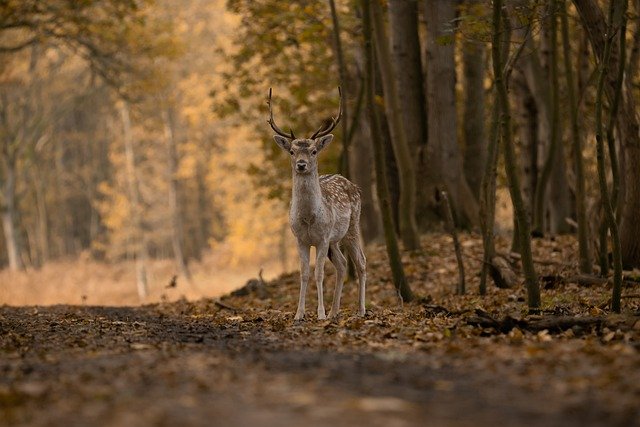Large-scale outbreak of wild deer may return COVID-19 to humans in U.S.
- Normal Liver Cells Found to Promote Cancer Metastasis to the Liver
- Nearly 80% Complete Remission: Breakthrough in ADC Anti-Tumor Treatment
- Vaccination Against Common Diseases May Prevent Dementia!
- New Alzheimer’s Disease (AD) Diagnosis and Staging Criteria
- Breakthrough in Alzheimer’s Disease: New Nasal Spray Halts Cognitive Decline by Targeting Toxic Protein
- Can the Tap Water at the Paris Olympics be Drunk Directly?
Large-scale outbreak of wild deer may return COVID-19 to humans in U.S.
- Should China be held legally responsible for the US’s $18 trillion COVID losses?
- CT Radiation Exposure Linked to Blood Cancer in Children and Adolescents
- FDA has mandated a top-level black box warning for all marketed CAR-T therapies
- Can people with high blood pressure eat peanuts?
- What is the difference between dopamine and dobutamine?
- How long can the patient live after heart stent surgery?
Large-scale outbreak of wild deer may return COVID-19 to humans in U.S.
Large-scale outbreak of wild deer in the United States! Experts worry about being a hotbed of virus variants and returning to humans.
A large-scale COVID-19 pneumonia (new coronavirus disease, COVID-19) infection has occurred in wild deer in Iowa. Experts worry that the virus will mutate in wild deer and then be transmitted back to humans.
A study in the United States found that a large-scale COVID-19 pneumonia (new coronavirus disease, COVID-19) infection occurred in wild deer in Iowa, and nearly one-third of the tested samples were confirmed to be infected.
The research team pointed out that wild deer may become the host of COVID-19 pneumonia, and they are more worried that the virus will mutate in wild animals such as wild deer and then re-infect humans.
According to media reports, the research was conducted by the University of Pennsylvania, the Department of Natural Resources of Iowa, and the University of Iowa.
From April last year to January this year, researchers have collected lymph node samples from wild deer shot by hunters and killed by vehicles.

The study found that 33% of the deer were infected with COVID-19 pneumonia. When the epidemic worsened last year, the infection status of the deer herd also showed signs of spreading. According to a study last year, 83% of the 97 deer samples from November 23 last year to January 10 this year were infected with COVID-19 pneumonia.
Researchers worry that the virus will continue to spread in wild animals in Iowa, and deer may also become an animal reservoir. If the virus mutates among new hosts such as deer, it will become a source of infection, and it may also transmit the new variant virus to humans.
The research team urged the scientific community to find positive and effective response methods as soon as possible, to have a deeper understanding of how the COVID-19 pneumonia virus evolved in wild animals, and to strengthen the monitoring of wild animals to identify potential animal reservoirs.
(source:internet, reference only)
Disclaimer of medicaltrend.org
Important Note: The information provided is for informational purposes only and should not be considered as medical advice.



